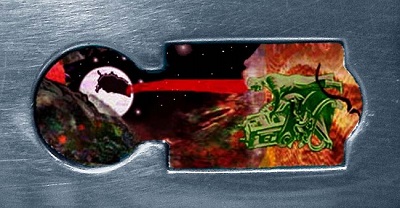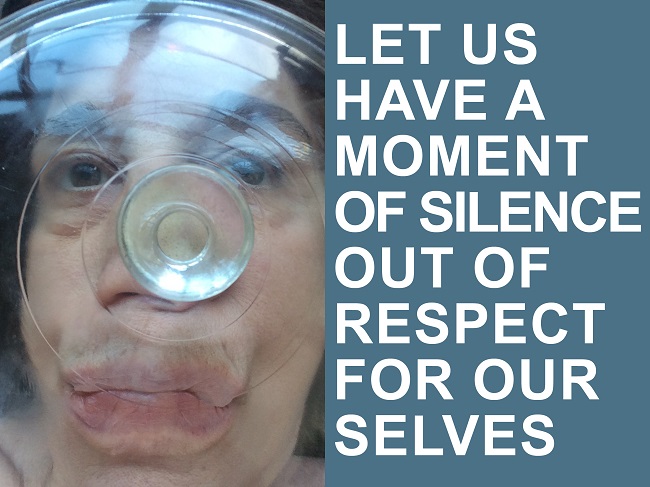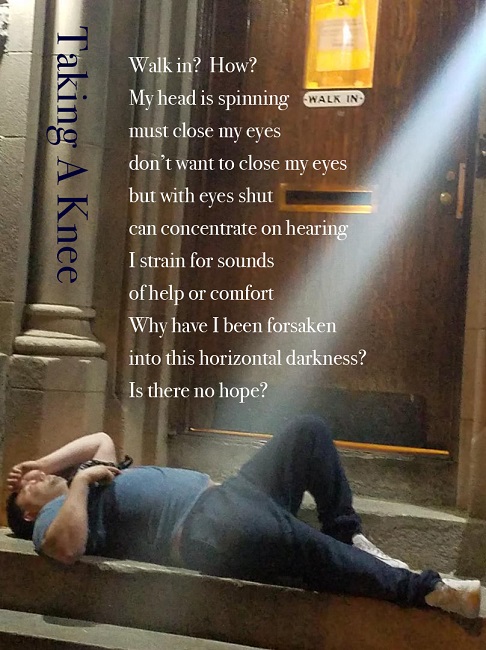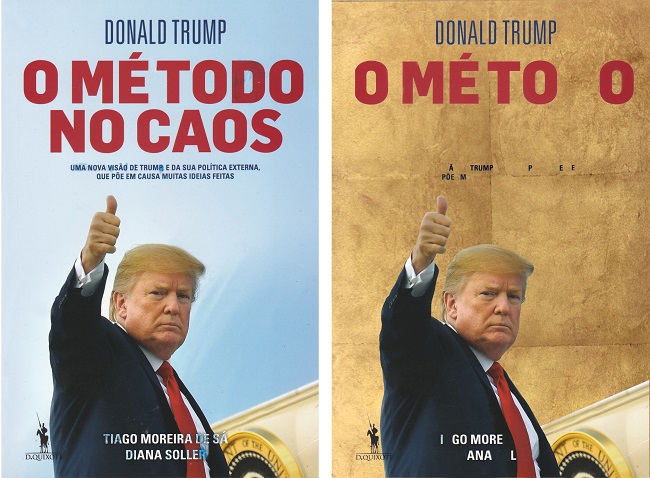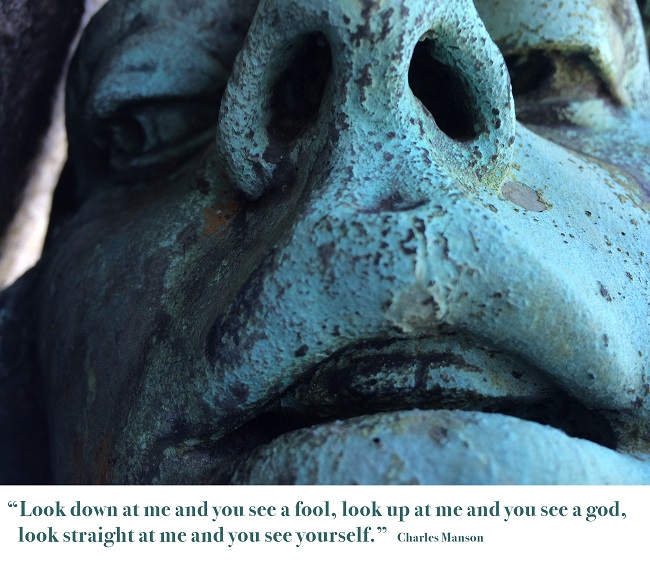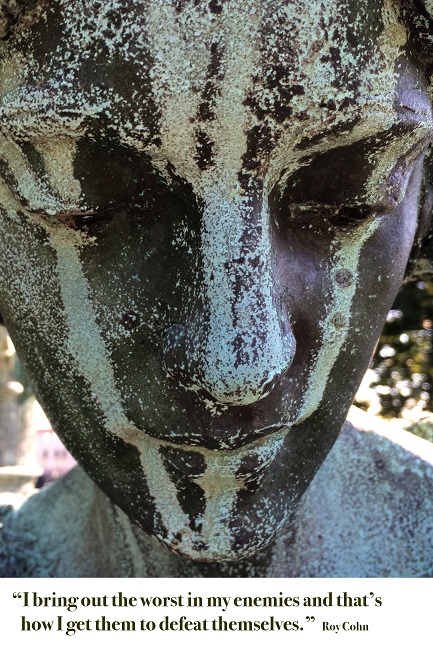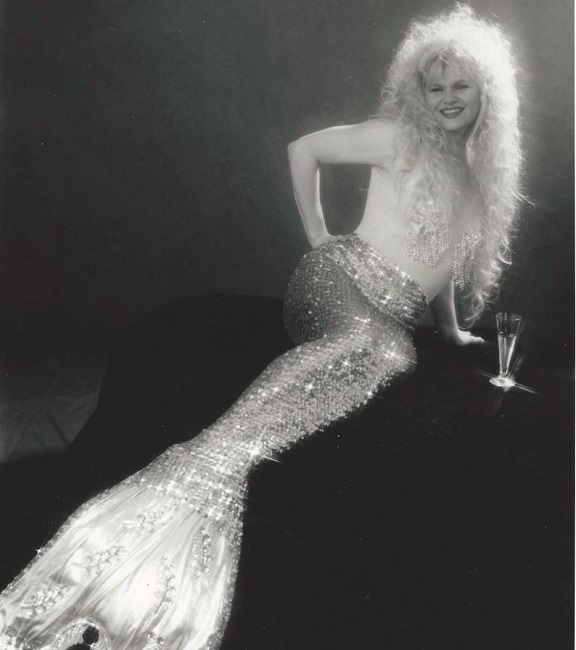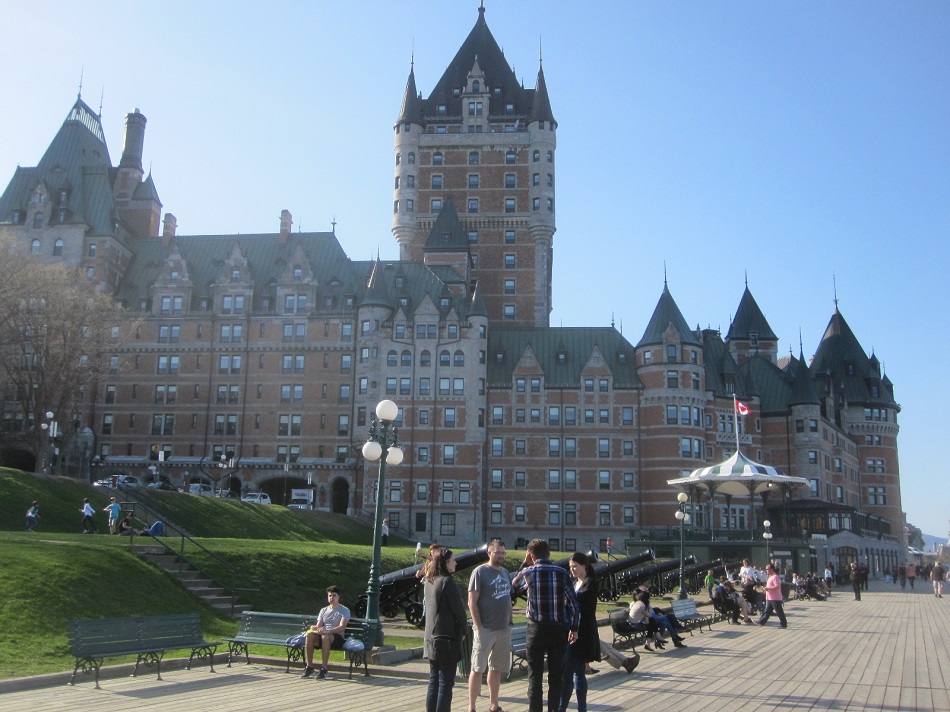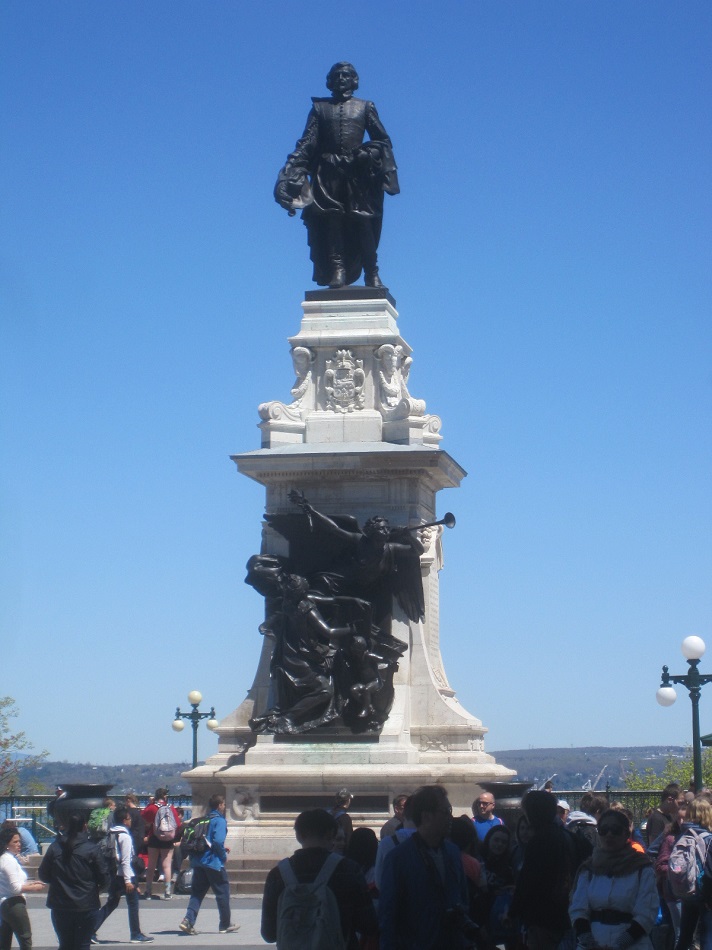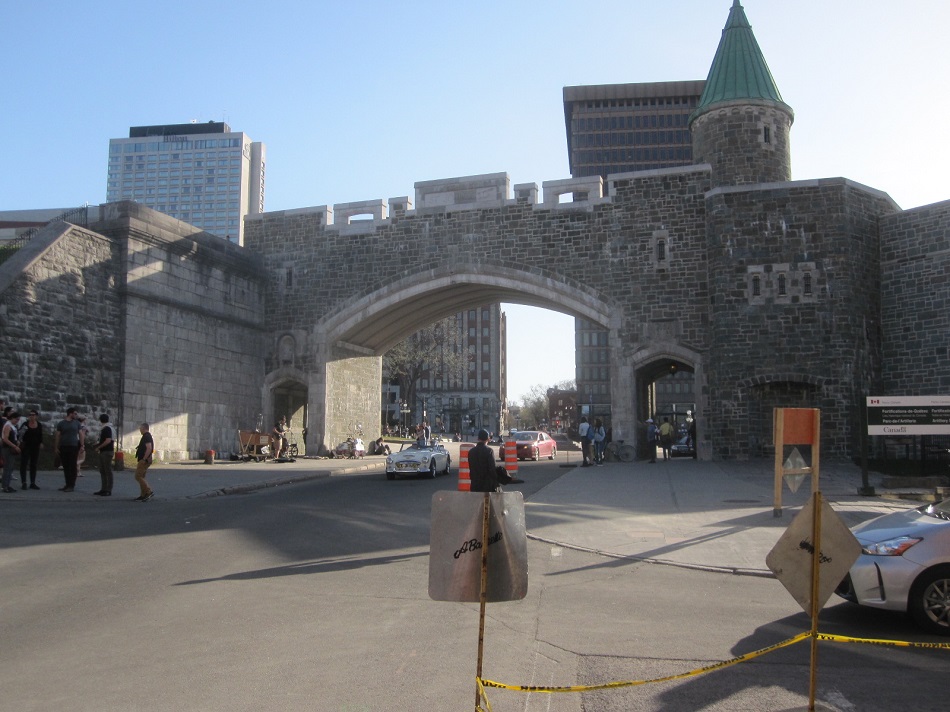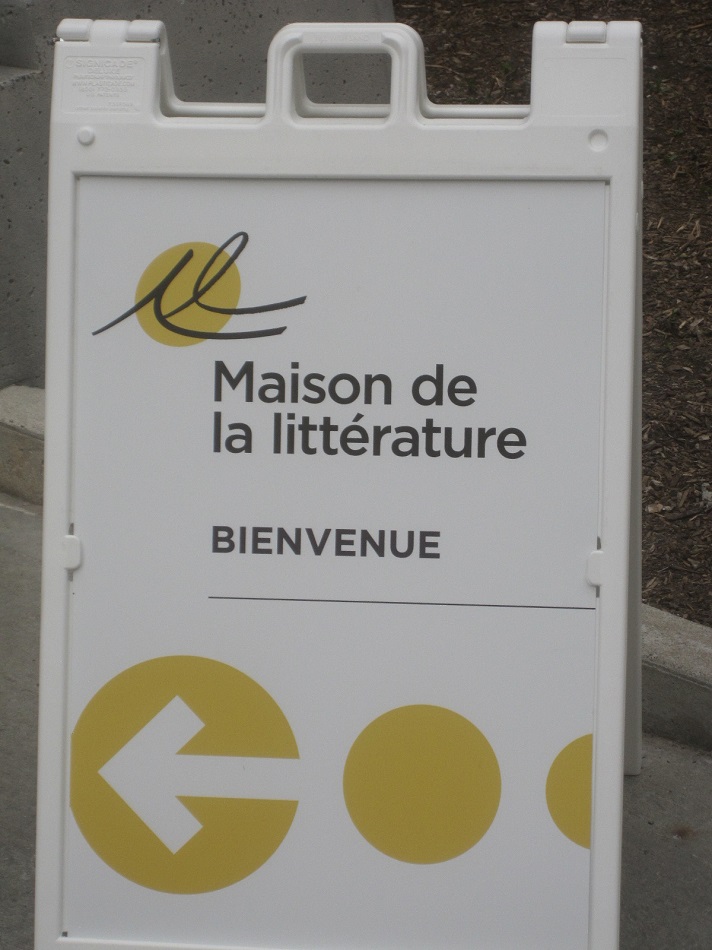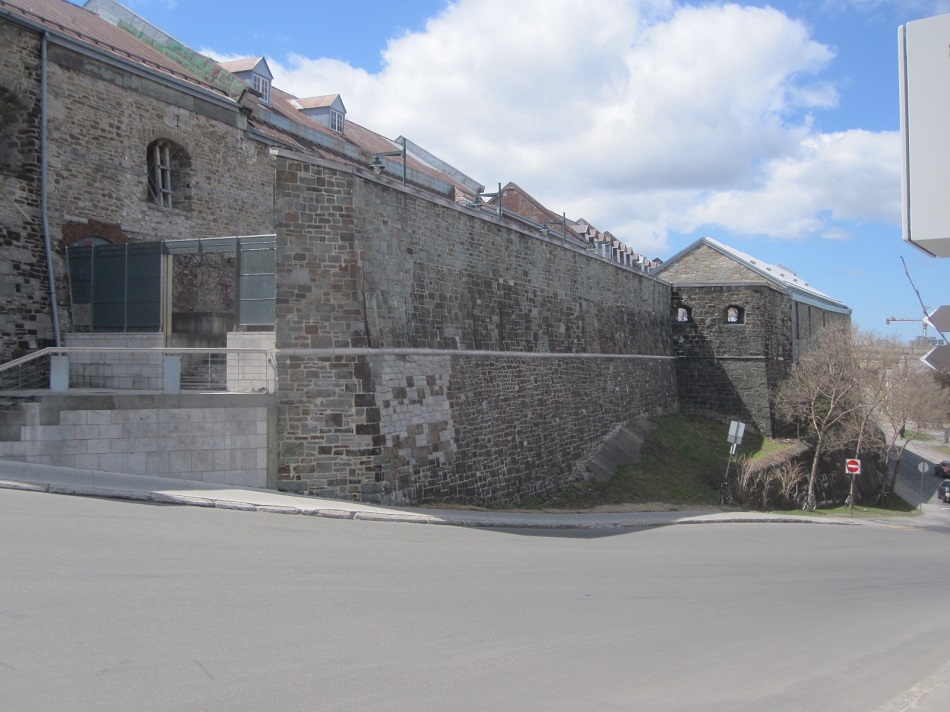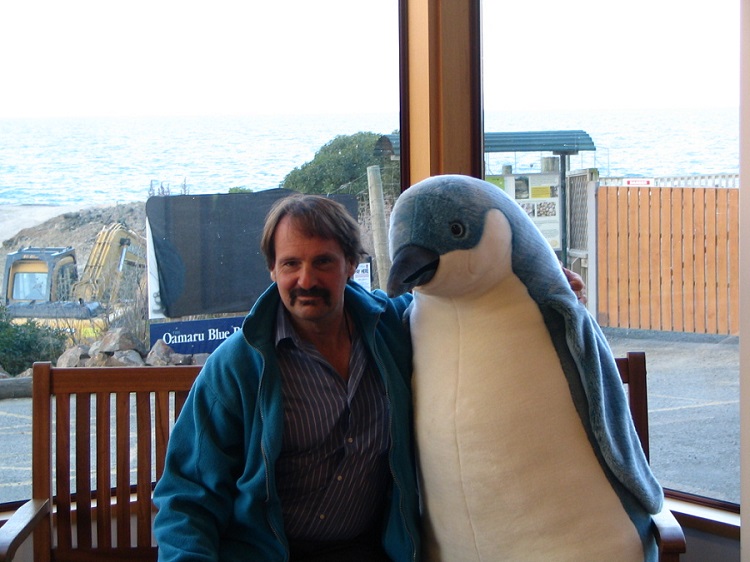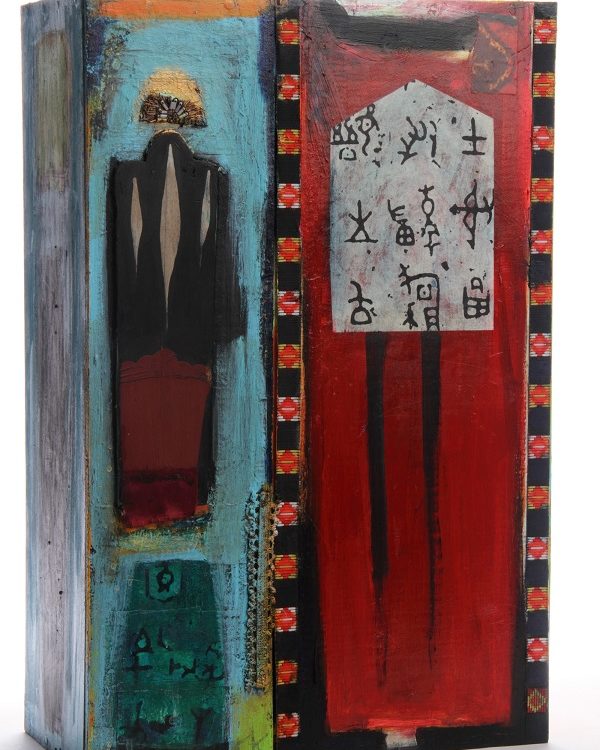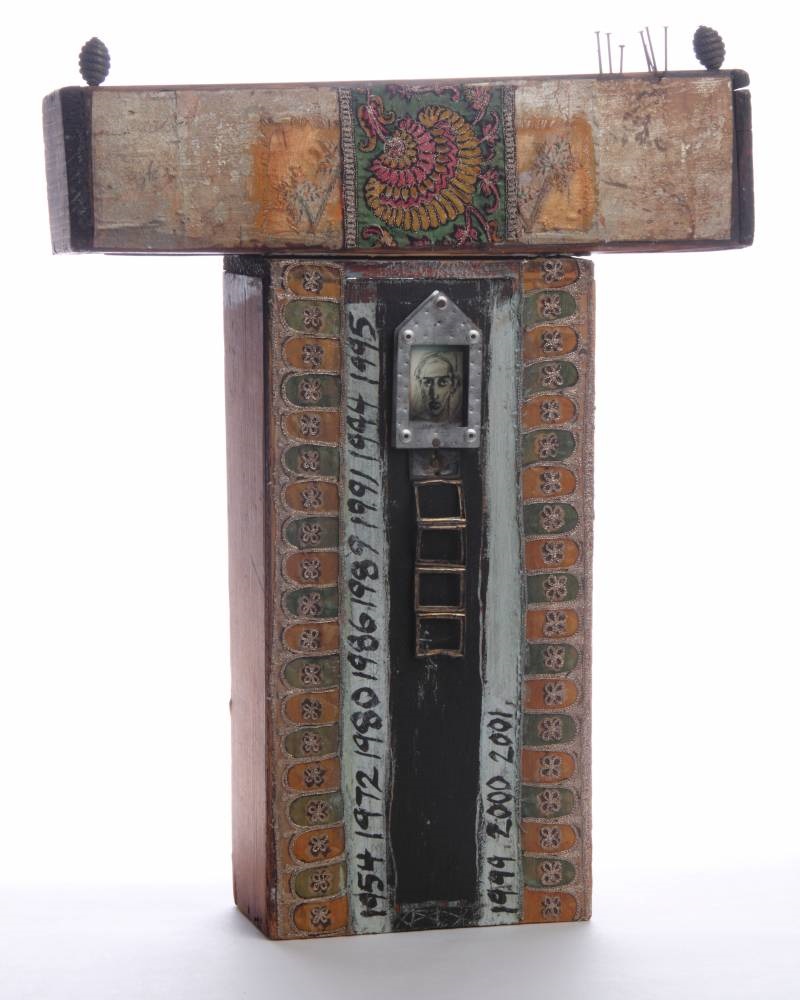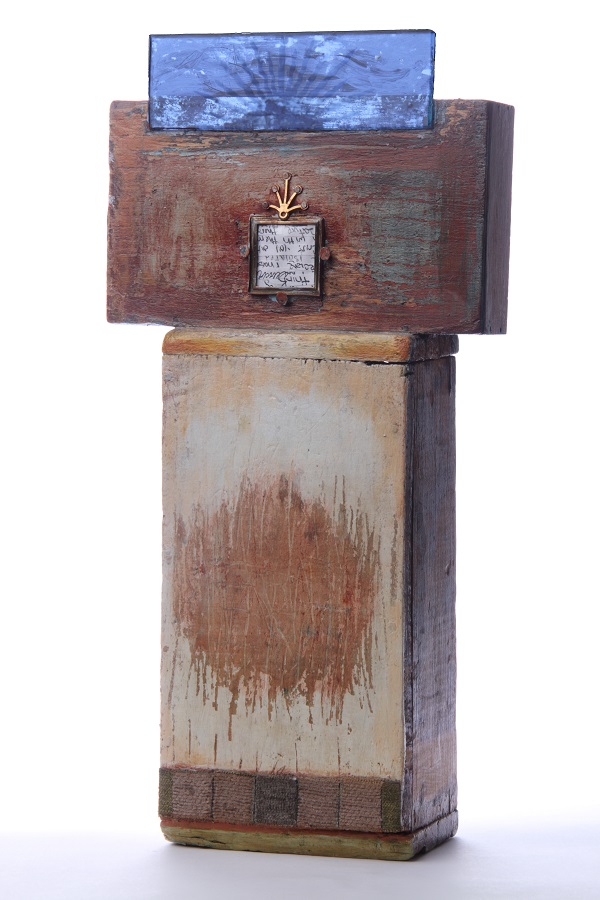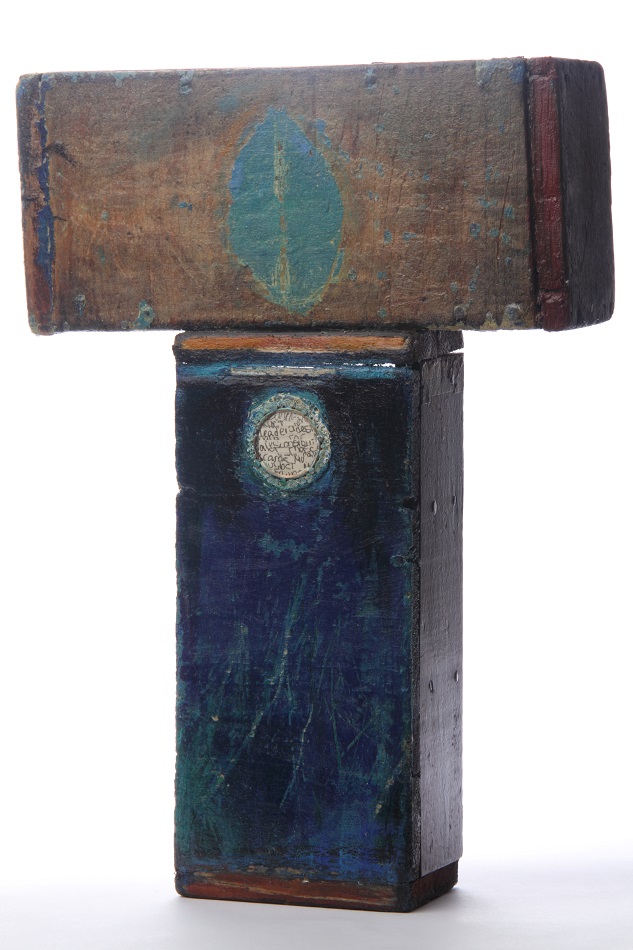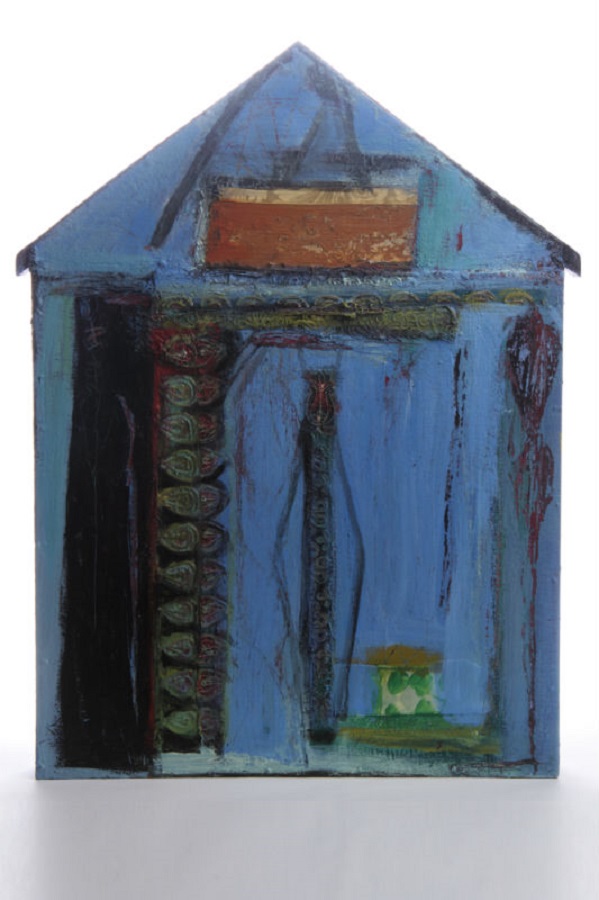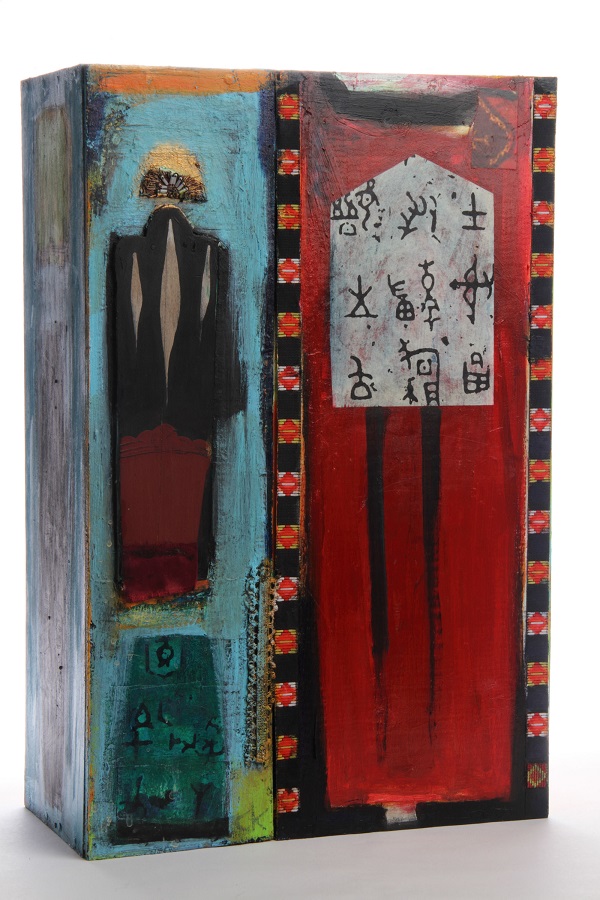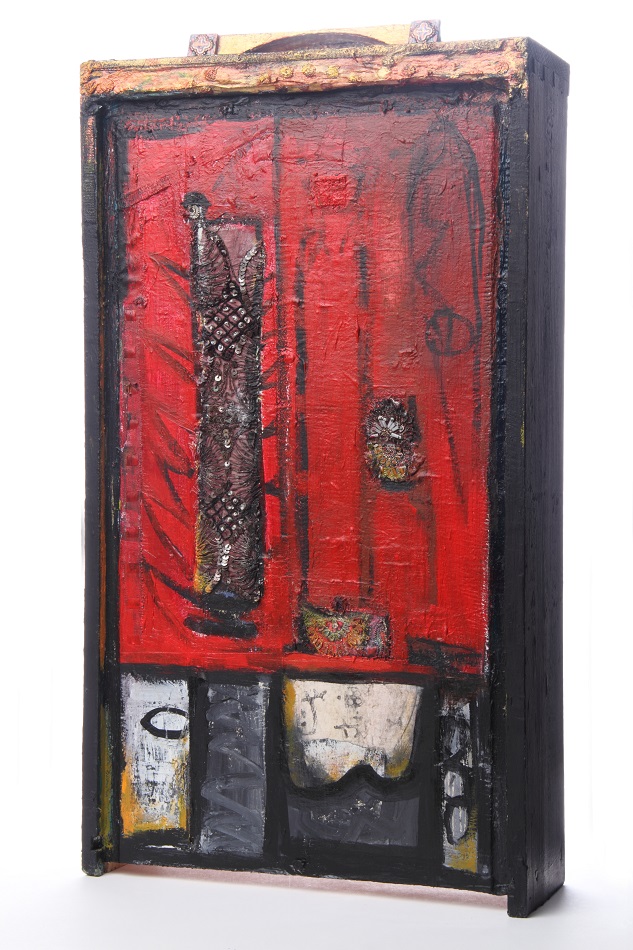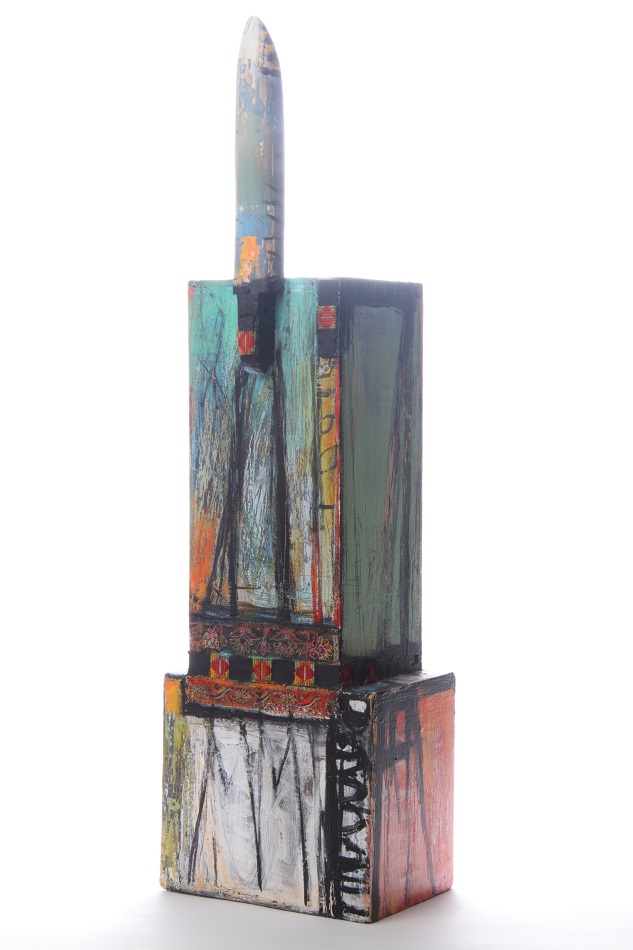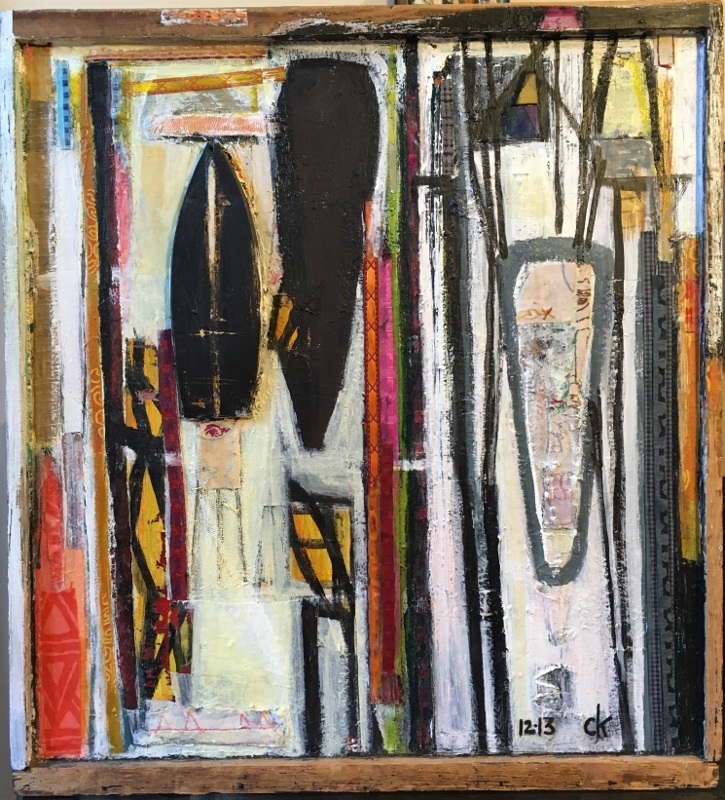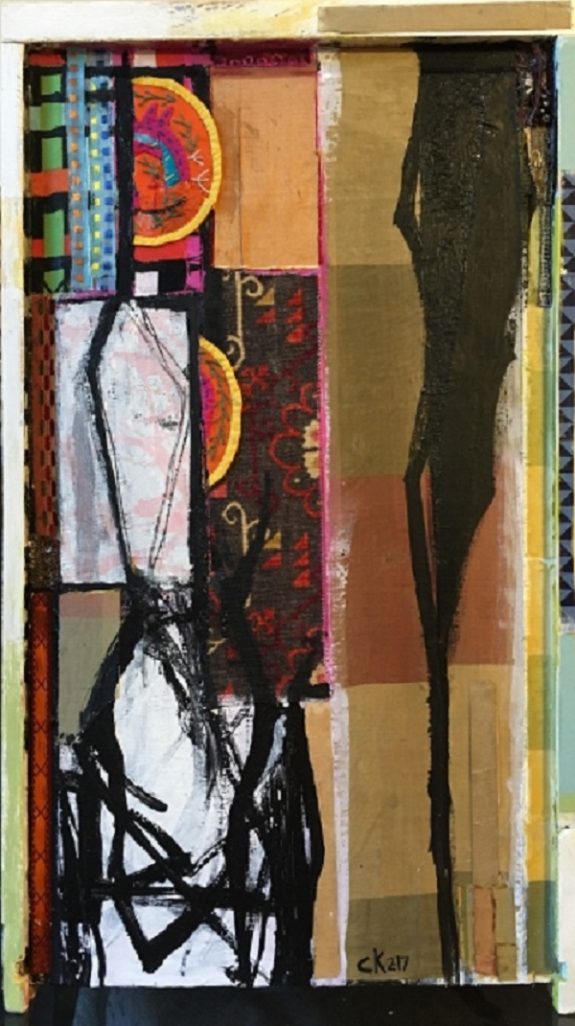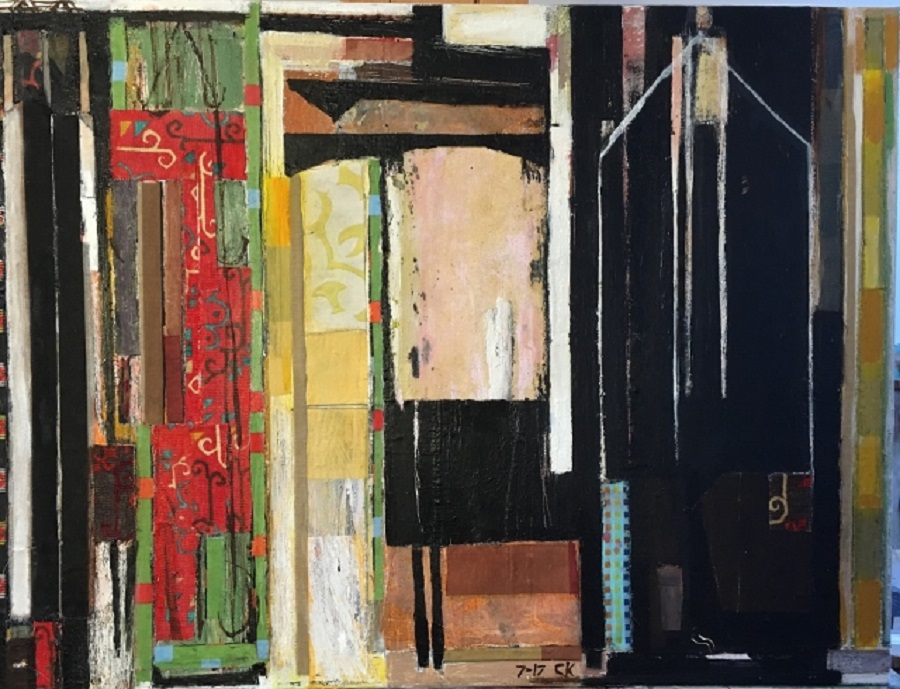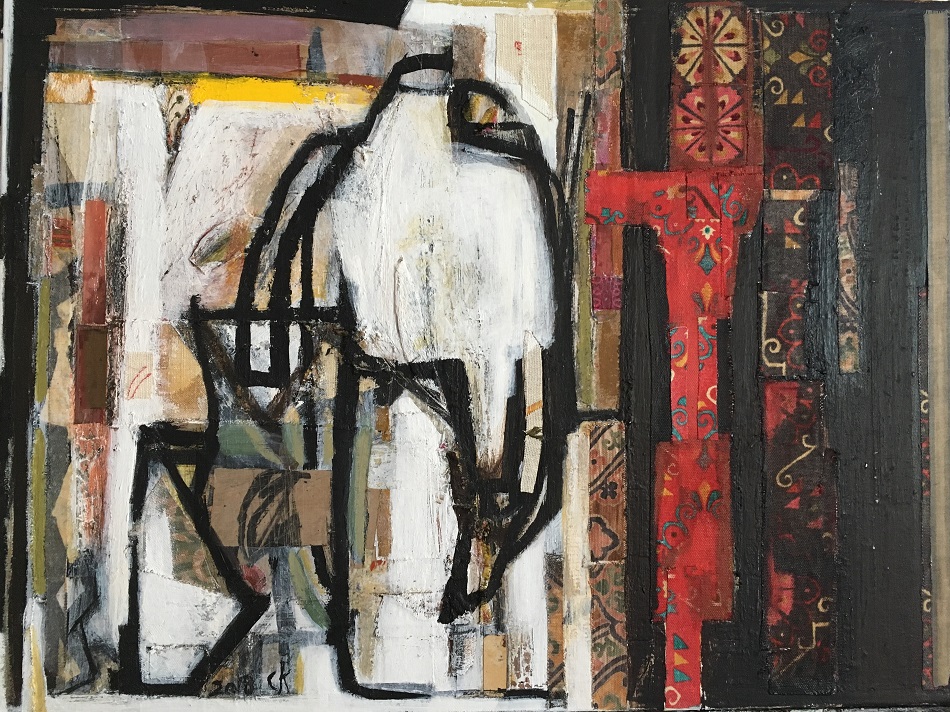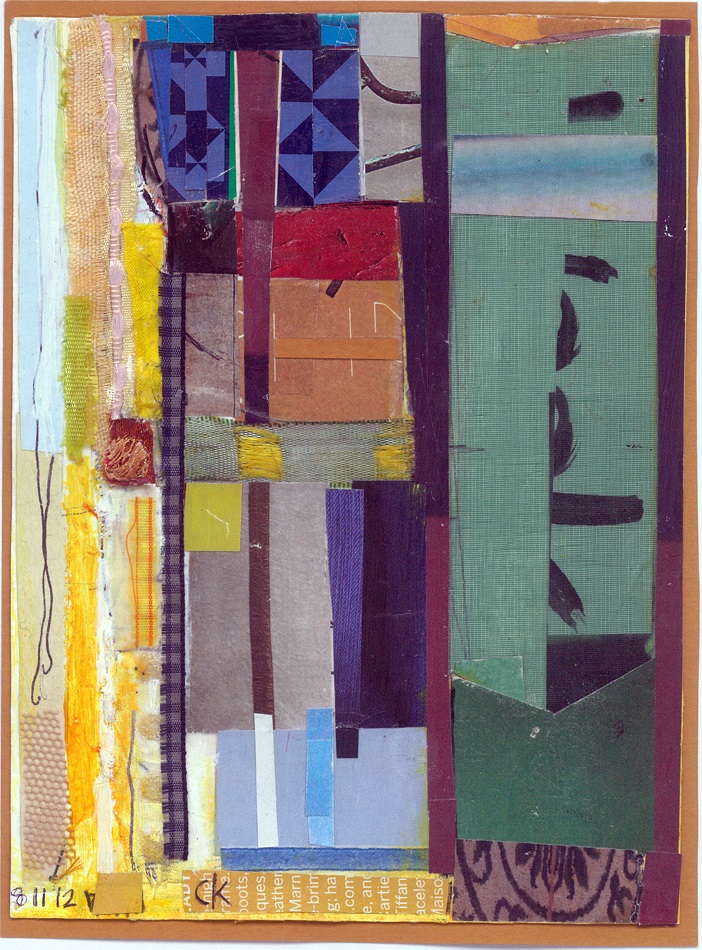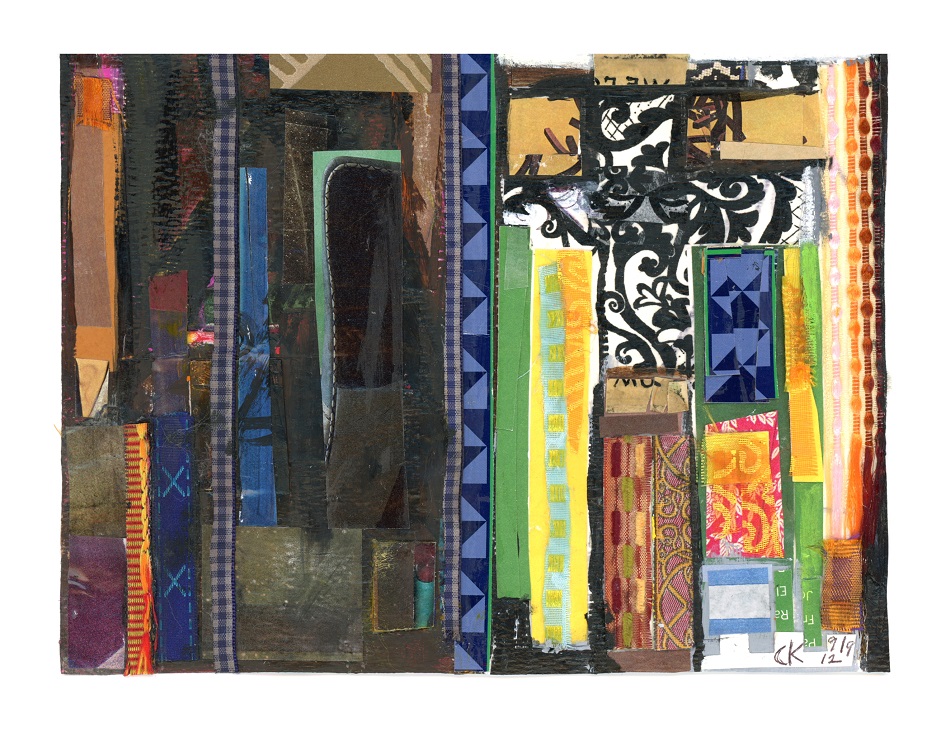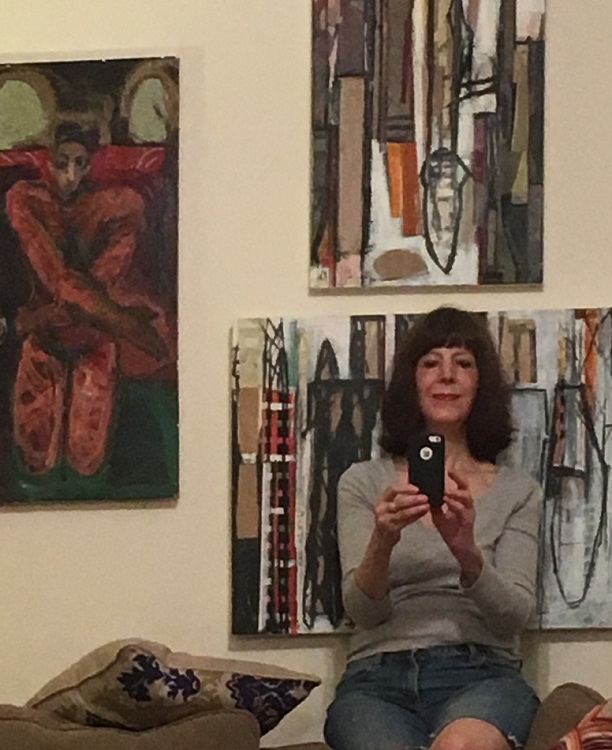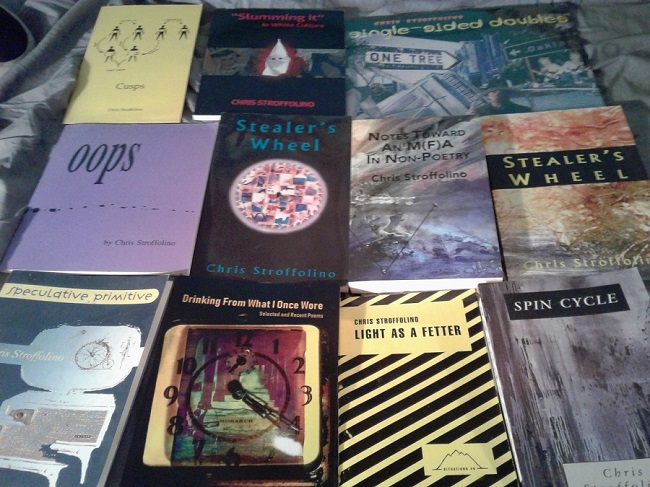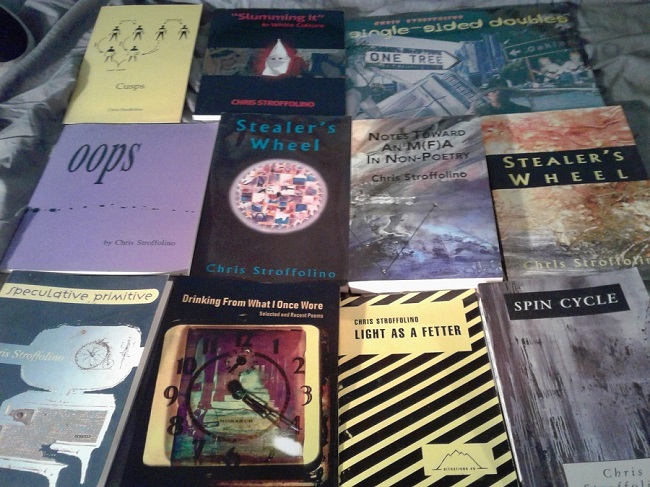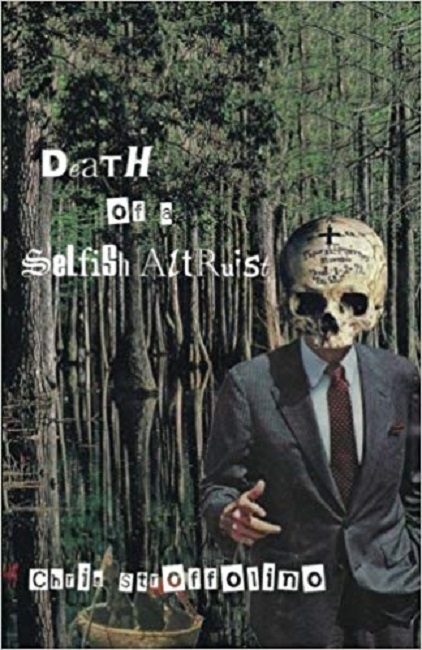[detail from] The Keyhole Collaboration [for Zazie] Dale Houstman digital collage 2654 x 1500 pixels ©2013
3.7: scrambled aliens | Arthur Broomfield — surreal poetry & poetics
banner art
[detail from] The Keyhole Collaboration [for Zazie]
Dale Houstman
digital collage
2654 x 1500 pixels
©2013
intro to scrambled aliens by Krysia Jopek
i’d like my dada eggs scrambled with androids this morning, cyberspace cyborgs, if you will, and serve them up cold and fluffy to you while YouTubing some John Cage while Derrida butters his toast like any other human with his tea that he takes with a splash of milk. there is so much here in the negative space underneath the font / textured language that playfully unfolds a plethora of planes, layers, on the canvas of the collective unconscious of the poet [and you, Dear Reader], stuck momentarily in the gaps [mind the gap[s], please, as you step off the train to the platform, a bit unsteady from the proliferation, as you amble with that awkward gait toward our final destination and the processing thereof.
Please enjoy the new poetry, selected published poems, and interview / poetics with Arthur Broomfield!
new poetry
How it will begin
The funeral bell rings the fungi infected streets asphyxiate
down below the purple and puce puckered orb solidifies beyond.
a log cabin, Apollo at the stove, traverses the stratosphere.
In the now spindle backs chase racing marigold seeds
from the sacred halls of pimps and bag carriers,
the apple apocalypse absorbs decay.
A crochet curtain comes down to volcanoes and strawberry soufflé,
naked men dance on pin cushions moaning under the weight
of Van Gogh’s Starry Night.
A man scoops snow and drops it in a Tesco trolley.
The snow disappears through the bird hole.
The trolley disappears.
The man is excited. He scoops again and again and again.
Each escape to a desert of lush moon worms
and cascading overhead sewers.
©2019
Tales from the non-verse
I am embalmed in shipwrecks and string quartets.
I glide along a gossamer girder
with my non-gender mistrusts of the non-verse
we dress in corduroy tights and high heels
and shave with acetylene blow lamps
I am here, I watch an old woman
he wears widows weeds, is me
as she and he go cluck cluck cluck
they scatter potato skins and radioactive oats
for the drones I send
that buzz around their ears.
I have implanted French fries in her head.
©2019
Salt and paprika
To say their story is empty egg shells
on moon mirages
twinkling watercress and cheviot sheep
with no strings attached
she played the last deuce in the water lily plot.
The many options carved in sacred clouds
of mist and alabaster
known to three of the four horsemen
ploughed on regardless of the shifting acrylics
and albatross shadow with pitchfork feet
reflected the shapely nude on the butterfly wings
that supported the impressive palace.
Knowing this first she ate the laid egg
and carried them on beds of thistles and whooping cough
to the church of the confused chicken.
©2019
Sixbeams
Seeing the sixpence as a moon
the waterhen squeezed another coriander seed
through the billboard
advocating avocadoes as an irritant
for shredded furze politics.
Life, she whistled, is afloat
with Lilies crowning crows
to a dawn chorus of oyster shells
and burnt-out toasters.
©2019
When a visitor knocks
When he speaks in hair-sluiced mushroom suites
and thunderbolt echoes from spinach seeds,
the man in Orion’s belt,
the frog-eared and margarine-manacled
rush to hoover the hall,
when he sings the tree-scowled heretics dance to war
when he cries the believers tip-toe across sponge cakes
wearing their army boots like The Book of Common Prayer
when the reed in his flute has turned to jelly
they moan to the dawn chorus.
Blessed are the poor in spirit
for theirs is the kingdom of cross-eyed zebras
and warmed-up goose hearts.
©2019
selected published poems
The Poetry Reading at Semple Stadium
The first poetry reading
I ever attended
was at Semple Stadium
in the early days
of my love affair
with Tipperary.
Everyone else thought
it was a hurling match
but I knew it was a reading
when I heard the poet
rhapsodise the names
Of G.A.A. clubs
through the charged aura
of a hurling stadium
from his bunker
beneath the New Stand.
Isolated on his podium
by ticket sellers
counting out their takings
the Ezra Pound of Thurles
shocked me with the excitement
of the spoken word.
As he read out the names
Carrick-Davins, Lorrha,
Boherlahan-Dualla,
Moycarkey, Roscrea,
Kilruane-McDonagh
and Borrisoleigh
the fans cheered their players
and their clubs.
And I cheered the poet
for giving me back
my love of language.
from The Poetry Reading at Semple Stadium [Lapwing, 2012]
The Bee Woman works at her hive
after “The Bee Woman” [painting by Brigid Mansfield]
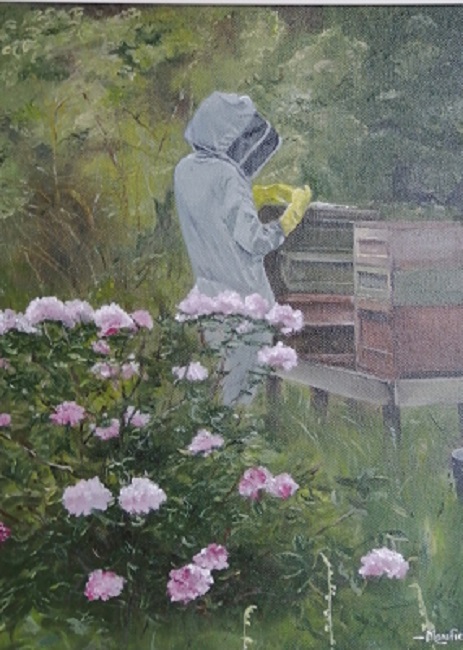
bee woman
Brigid Mansfield
oil
©2016
During lulls in the natural order,
when the dead have been buried
and the laws of seed time and harvest
are reinstated, look on me as
the landlady with the right tenants,
popular in business in quiet times.
In concord with the will of the world
I pose in white suit and visor
as I record the verve of the hive,f
the stash of its riches:
propolis, pollen,
royal jelly, eternal honey,
nectar and beeswax,
as any concern would,
while Queen Bee, entrusted
to her particular space and time,
desirous, mates and breeds,
builds, convicts the unwanted.
In normal time I emerge,
when the whiff of ordnance in the air
sets the lines buzzing with rumours of wars,
and the forest flora and ferocious winds
snarl in tremendous arguments,
scattering the indecisive rhododendron,
accommodating what the land will allow.
Now I am the ethereal one returned
from the debacle of maternal earth,
of it and on it, the calm in the storm.
I am here in the hum and whirr
of these zips and zooms, visible,
as a pallid robe and medieval yellow gloves,
the infinite spirit that assumes presence,
laying hands on the pollinating hive.
from The Giant’s Footsteps on The Rock of Dunamaise [Revival, 2019]

Arthur Broomfield’s poem “Emo Court’ is now hanging, as of September 15, 2019, in the Coffee Shop at Emo Court. “Nice event when the hanging took place [no pun intended, I’m still here ] with Martina Lewis of the OPW, composer Ian Wilson and three wonderful violinists all the way from Serbia! nice to be honoured in one’s own province. A day to remember.
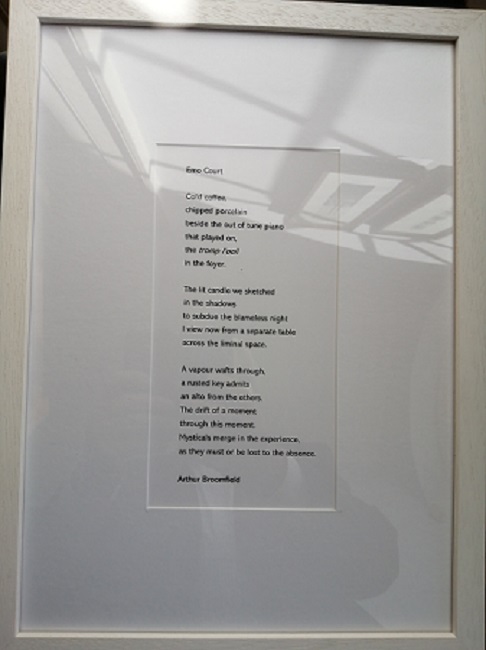
Emo Court
Cold coffee, chipped porcelain
beside the out of tune piano
that played on,
the tromp l’oeil in the foyer.
The lit candles we sketched in the shadows
to subdue the blameless night
I view now from a separate table
across the liminal space.
A vapour wafts through,
a rusted key admits an alto from the ethers.
The drift of a moment through this moment.
Mysticals merge in the experience,
as they must or be lost to the absence.
from Cold Coffee at Emo Court [Revival, 2016]
Nothing to be Done
after reading Sylvia Plath’s poem “Lady Lazarus”
Sylvia Plath reading “Lady Lazarus”
If I could lay you out on lenient couch
and softly correct your contradictions,
heard and unspoken,
heart and enchanted,
with my embalmer’s hands;
If I were to rid you of your fiends,
to leave you to the flesh and blood
of the bread and circuses you loathe,
If I were to dead head the hot angst
that burns the grip of your gossamer traps
and leave you silent as a moth in winter,
would you, crushed, perish in the void,
and leave us, nothing, not even a word?
from Cold Coffee at Emo Court [Revival, 2016]
[insert title]: poetics & interview–Arthur Broomfield
poetics: “my poetry is driven [a] by the desire for freedom i.e. to free poetry from all of the “givens” that are imposed on it, which would include ideology, the trappings of “the world,” by which I mean culture, tradition, community, the notion that the world is as it appears; [b] interpretations of works of art, literary theory; and to free language from the stranglehold of conventional meaning. Jacques Derrida and Julia Kristeva have been influential in developing this drive, but it has been inherent in me before I had read either of these philosophers. I would say that studying their works and understanding their thinking fed something that had been there anyway. I owe a lot to them both. For instance, I wrote a number of poems in the 1980s before I had become acquainted with either of their writings that were critical of the oppressive role of the Catholic church in Ireland, and [c] a need to celebrate, which is seen in the occasional poem that recalls events from my childhood growing up in rural Ireland and in poems like “The Poetry Reading at Semple Stadium.”
How long have you been writing seriously and when did you first publish?
I’ve been writing and publishing since 1985. My first published poem was “The Poetry Reading at Semple Stadium”. It was chosen by the great Irish poet, Michael Hartnett for inclusion in an anthology commemorating the birth of Patrick Kavanagh. I was accepted for publication in most Irish journals of repute in the years up to 1998 [Poetry Ireland Review, Cyphers, The Sunday Tribune, The Honest Ulsterman etc] and read my poetry and gave interviews on RTE, the Irish state broadcasting corporation. I returned to college in 1998, NUI Maynooth; and Mary Immaculate College, University of Limerick, where I was awarded a Ph. D for my thesis on the works of Maria Edgeworth. During my college years I became absorbed in Jacques Derrida’s Deconstruction which later led me to studying Samuel Beckett’s works, especially those from The Unnamable on. I published my study of Beckett’s works, The Empty Too: language and philosophy in the works of Samuel Beckett [Cambridge Scholars’ Publishing] in 2014. I think I only wrote one poem in my college years, the irreverent “The Minister for Agriculture’s penis speaks out”. I got back to writing poetry around 2009.
What is your impression of the poetry “industry” these days? regarding readership, feedback, and publication.
The essential focus for a poet should be to write and to think about his/her poetry, to respond to whatever it is that drives–compels–him/her to write, to be true to thine own self. His/her quarrel should be, as Yeats said, with him/herself, out of which poetry is made. I could say a lot about the poetry industry in Ireland and much of it would not be good, but I won’t because to indulge in such talk would be a distraction from my writing. To engage with those of whom I am critical would be to descend to a discourse that, to quote Gray, “is the language of the age [that] is never the language of poetry.” Aside from that inconvenience, I am fortunate to be writing in Ireland.
I have some very good and supportive poet friends. We meet occasionally, workshop new poems and float ideas on where poetry is or could or should be going. I am privileged when it comes to readership. My recent collection Cold Coffee at Emo Court sold 2000 copies all through Ireland. I suppose I bucked the system as I got out and sold most of them “by hand” from town to town. It was hard work but a great experience which I enjoyed very much. I discovered that Ireland is indeed full of warm, friendly people, interested in and willing to support its poets.
Aside from the conservative “establishment” organs Ireland is buzzing with poetry journals which are open to innovative and surreal work. Revival Press, who published my last and will publish my forthcoming collection, that has the working title The Giant’s Footsteps on the Rock of Dunamaise, is the most exciting book publisher to emerge. Fearless and unfunded they have published titles by authors other publishers, for whatever reason, didn’t or wouldn’t. Apart from Ireland journals in the UK and the US accept work from many Irish poets, me included.
What are the major influences on your work–literary and non-literary?
Can you speak to your writing process and style?
My poetry took a major turn in December 2017 when I was part of a workshop run by Hilda Sheehan, the English surrealist poet. Breton is now my major influence and his 1924 Manifesto is my constant go to inspiration, though instead of accepting Freud’s questionable notion of the unconscious as the source of the surreal I am inclined to think quantum physics, extra-terrestrials parallel universes and Plato’s elsewhere. Almost all of the poems I now write are attempts to get close to the pure surrealist. Those I have written prior to 12-17 I now call “Old School”, or “Writing.” To over-simplify–when writing Old School one inhabits the thinking process and the meaning and connotation of words of and to the conscious world; the emphasis is on getting the word that will best articulate the perception and to hope that in the process words from The Other–and by The Other I mean parallel universes, ETs, quantum physics etc, what Breton thought to be the unconscious–will drift to the poet in an inspired moment. I take a very different approach ,and it’s one I find that works for me.It begins with getting into a mood where, insofar as it’s possible–and for sure that’s the hard part–the world is excluded and the mind is open to The Other; what Breton calls psychic automatism, which he explains is “thought in the absence of any control exercised by reason, exempt from any aesthetic or moral concern.” Of course, one must use the tools of the world, pens, paper, words and images, word processors, etc.
To get there I start by writing 3 or 4 pages of automatic writing, followed by 7 or 8 minutes of meditation. Then I’d listen to jazz, Coltrane, Miles Davis, Charles McPherson, Sonny Rowlands. I’d leave it for an hour or so before putting pen to paper. I might start with a heading and let the images flow, because Surrealist poetry is about images, the juxtaposition of images that bring together distant realities without premeditation, to paraphrase Breton. I might leave the poem for an hour or so before checking it for intrusions from the world, bad grammar, realistic descriptions or parts that jar but unlike Old School poetry the reworking is kept to a minimum. I see myself as a mere medium and cannot claim blame or credit for what I write, it comes through, not from me.
Non-literary influences would include The Irish Times, BBC Light Programme, growing up as a Protestant in Catholic Ireland, the political and social landscape of Ireland, Charlie Haughey, Paddy McCormack, Alex Ferguson, Eoghan Harris, Shane Warne, the Akaschic record and quantum physics [what I know of each, which is very little], time spent drinking socially, cattle marts, my ability to sell and English comedy to name a few.
How has your identity as an Irish writer and scholar of Samuel Beckett influenced you?
The great, unsurpassed, Irish writers are still Yeats [and his great hero, Swift], Joyce and Beckett. Others that followed them like Flan O’Brien, John MacGahern, and Patrick Kavanagh seem to be standing the test of time. Then we have the Northern poets, Heaney, Longley, Muldoon and Mahon who are products of the Northern Ireland sectarian culture that led to the troubles, excellent poets for sure, but are they doomed to be the poets of the troubles e.g. Heaney’s North and suffer the fate of the WWI poets? There are many definitions of Irishness, each coloured by its cultural, historical and religious roots. There is a great richness in this diversity that I like to explore [as I said I come from a Protestant, Church of Ireland background].
I think that exploration comes through in some of my poetry, especially in the surreal stuff, but that could come from the Other. Beckett, especially in his significant later works, which deal with the possibility of empty language being the real, scarcely mentions Ireland, its culture or history; I address this thesis in my work The Empty Too: language and philosophy in the works of Samuel Beckett [Cambridge Scholars’ Publishing, 2014]. Time, place, the world of things, the corporeal and character, seem to Beckett to be passing nuisances that get in the way of his emphasis on the real, which is the artistic and philosophical focus of his works from The Unamable [1953] on. Beckett is a philosopher and an artist; his art is his philosophy and his philosophy is his art. He is a giant of world literature who is not yet fully understood–still ahead of his and our current time. To study for and to write The Empty Too was a rich and exciting experience for me; I felt I was getting to know one of the great minds of the twentieth century, if not all time.
His works were an influence that I knew I couldn’t challenge; I knew I couldn’t aspire to be even a very poor imitation of the master who had said it as it is. After Beckett, the matters of the existential world seem to be trivial, ephemeral moments. Maybe he influenced me, maybe my turn to surrealism was a result of absorbing his inferences on the unreality of the existential world–though my turn to Surrealism was not a conscious decision. It came from a chance meeting with Hilda Sheehan, but who knows, maybe it was the surreal at work!!
What are you currently working on?
We’re putting the finishing touches to my next poetry collection The Giant’s Footsteps at the Rock of Dunamaise [Revival Press]. The Rock is a well-known landmark near my hometown of Portlaoise; the mysterious “giant’s footsteps” are imprinted on a part of the Rock. Maybe the title will lead to their research. The work is three quarters Surrealist and the rest is about twenty pages of Old School poems that have been a runner up in a competition, published or accepted by reputable journals and seem to go down well at readings. I’m a bit nervous about how the Surrealist poems will be accepted in Ireland, although a good number of them have been published in Irish journals–and abroad–including, of course, I acknowledge with delight, in diaphanous micro. I’m writing more Surrealist poems, hopefully for a future collection, and I’m also thinking of writing an essay on Beckett’s play, Breath, and an essay on his philosophy for a philosophy journal. It’s been a while since I wrote about his works, feeling that I have said all I can, or want to say about them in The Empty Too.
What are the biggest challenges you face to keep going, writing as a literary artist in the 21st century and within the construct of your non-writing life? Or perhaps this is not an issue for you, if you are lucky.
The biggest challenge is myself insofar as I don’t believe writing is 90% perspiration. I tend to act on the impulse–a “surge of energy” an artist friend calls it, and I think that’s it–maybe it is inspiration. On the other hand, as Derrida says, “things happen when you’re writing.” I still need to feel this charge of energy before I write anything that I, at least, consider worthwhile. And, of course, this self-doubt that’s probably common to all writers, the feeling that in your best moments all you can experience is the tiniest glimpse of reality. It’s not even a light in the tunnel; it’s more a glimmer that lasts a second or two and then goes out. But to have experienced even that glimmer is what drives you, challenges you to confront the self-doubt. [Though, as I’ve said, the experience of writing Surrealist poetry has its origins in a very different place, beyond the self, I think]. Beckett said it–“I can’t go on; I’ll go on.” After that, I am lucky that my non-writing life gives me the space to respond to the challenge.
When the Dust Settles [International University Press, 1993]
The Poetry Reading at Semple Stadium [Lapwing, 2012]
The Empty Too: Language and Philosophy in the works of Samuel Beckett [Cambridge Scholars’ Publishing, 2014]
Mice at the Threshing [Lapwing, 2014]
Cold Coffee at Emo Court [Revival, 2016]
links to Arthur Broomfield’s publications
The Poetry Reading at Semple Stadium
Art Interview with Arthur Broomfield in Limerick Leader
biographical notes
Dr. Arthur Broomfield is a poet and Beckett Scholar from Ireland. His published works include the poetry collections Cold Coffee at Emo Court [Revival Press, 2016], The Poetry reading at Semple Stadium [Lapwing, 2014], and the scholarly The Empty Too: Language and Philosophy in the works of Samuel Beckett [Cambridge Scholars’ Publishing, 2014]. Influenced by the Irish Beckett and the English surrealist poet Hilda Sheehan, Broomfield’s poetry turned to surrealism in 2017.

Arthur Broomfield, photographer
©201
